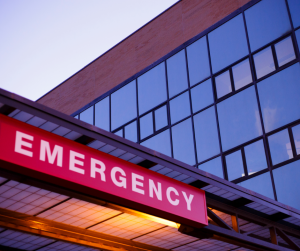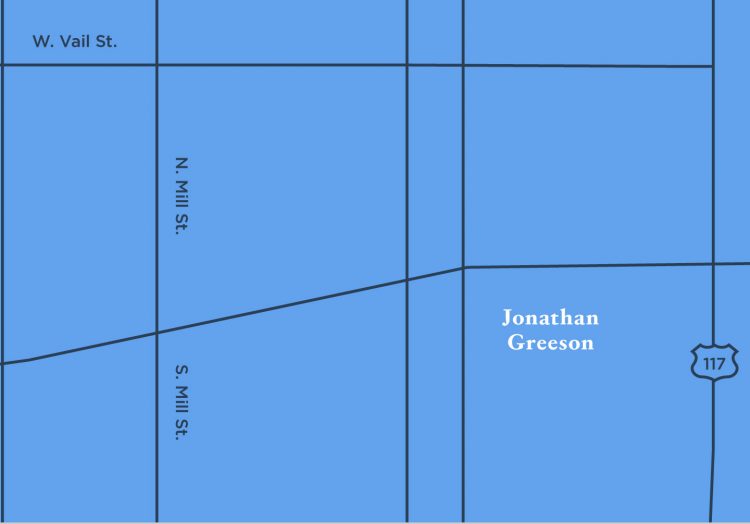How much should I have in an emergency fund during COVID-19?
The normal rule of thumb for how much to have in an emergency fund is enough to cover three to six months of expenses. Let’s be honest, the COVID-19 Pandemic dislocated that rule of thumb. If you had six months of expenses and lost all sources of income during the first shutdown in March, then your emergency fund would have run out in September! Someone who “did everything right” would be in danger of being homeless in less than a year. It’s a scary thought, right?!
The sad reality is that a majority of Americans’ emergency funds aren’t even close to covering six months of expenses. Studies have shown that most of us don’t even have enough to cover an unexpected expense of $500, which brings up an interesting question. If we can’t cover an unexpected expense, such as a car repair, how can we withstand something like the COVID-19 Pandemic?
A change in perspective leads us to create a new emergency fund during COVID-19.
As life causes us to create a new “rule of thumb,” how much cash should you have in an Emergency Fund during COVID-19?
The financial self-help experts encourage their followers to have $1,000 in an emergency fund, which is a great start, but it’s just a drop in the bucket compared to what you really need. Unfortunately, events like the COVID-19 Pandemic have served as real eye-openers throughout the history of mankind. Perhaps it is time to change our perspective on the emergency fund. It is not something to fall back on. It is the beginning of your financial journey. 
I’ve always complained about the antiquated rules where a person on Social Security Disability can only have $2,000 in resources. Yes, there are ways around this, but a majority of people with disabilities live in fear of losing their benefits and, therefore, cannot pursue their dreams. Sometimes our fear can be more crippling than our actual disability. I’ve always wanted to reach a level where I could get off of these benefits, but it’s hard to break out and start a life when only allowed such a small amount for an emergency fund.
As I have watched so many people struggle through the COVID-19 pandemic, I’ve realized that most Americans would love to have $2,000 saved. A hindrance in my eyes because I believe it is too little of an amount would be a blessing in the eyes of many. Normally, I keep a positive perspective, but this realization got to me. I know for a fact that $2,000 is not enough. In all of my financial planning courses the emergency fund rule of three to six months of expenses was drilled into my head. At this amount, one wrong move can ruin a person’s financial situation.
An emergency fund during COVID-19 helps make risk more affordable.
It’s virtually impossible for anyone to get ahead without a sizeable emergency fund. It’s hard for me to even encourage a client to invest when they don’t have an emergency fund. There will always be risks to investing and I would never want someone to lose their home because they placed their cash reserves in a high risk investment instead of an emergency fund. Of course, I’m not talking about a retirement account with a long term structured investment plan. I’m warning against a person taking their savings and investing in the hope of overnight riches. Sure, people have made fortunes this way, but I can almost guarantee many of these people had resources available, such as in an emergency fund, just in case the risky investment was a loser. Nobody likes to lose, but by having reserves available, an investor can afford the risks of having their money in an investment. When someone is living paycheck to paycheck and has no cash reserve in an emergency fund, taking such risks is NOT affordable. 
For example, let’s say you have $2,000 saved. You decide to invest it all in a new technology company in the hope that your $2,000 becomes $10,000 in a month. Wouldn’t it be awesome if life were that easy!? All of your research says the company is great and you should invest. Unfortunately, a week later your boss calls and they have to let you go due to the COVID-19 Pandemic. Now you have no money coming in and you have already invested your savings.
Sure, you can sell the stock and get your money back, but the stock crashed. Your $2,000 investment is now only worth $1,000, so how can you afford your $1,500 mortgage? In one week you have gone from the “middle class” to homeless! Of course, this is an extreme example, but that’s what I mean when I say the risk associated with an investment is not affordable.
This is why the emergency fund is so important. Not just to keep a roof over your head and food on the table, but an emergency fund creates opportunity. As the adage says, “If you want big rewards, you have to take big risks.” The emergency fund can help you afford some of these risks. When we don’t have an emergency fund as the foundation of our financial plan, our options for moving toward financial independence are very limited. Yes, I should be able to help you plan for retirement, but wouldn’t you want to pursue something more?
Funding retirement is becoming a requirement and not just a goal anyway. Very few jobs offer pensions now and have transitioned to defined contribution plans, such as a 401(k). While many companies will match your contribution to a point, these plans are a fancy way of saying YOUR RETIREMENT IS YOUR RESPONSIBILITY. So you see, unless you want to work until death, retirement planning has to be a priority. Again, it’s more of a requirement than a goal.
Let’s say everything works out at your job and you move up the ranks. You’ll receive a new title and increased salary, but are you really secure? If the funding for your job goes away because of a change in leadership, you’ll need that emergency fund to fall back on. The path to true financial independence starts with an emergency fund. It’s virtually impossible to move forward without one! Perhaps we should move away from calling it an emergency fund and start calling it a stability fund or an opportunity fund.
What if everyone went through life without an emergency fund, especially during worldwide problems like COVID-19 pandemics?
On the news when they’re discussing the COVID-19 Pandemic, I often hear how landlords are giving residents a break on their rent. Of course, this is great, but I have to wonder if the landlord can afford such kindness? I live in a rural area where many of the rental properties are owned by local families. The rents they receive may be their main source of income, so is it fair for us to force them to go without while we cannot afford to pay the rent?
If both parties don’t have an emergency fund, then a sad cycle can develop. As this cycle continues through the community, it can become detrimental to the local economy. Your financial stability starts with your emergency fund, but we can also assume our local economic stability starts with us as well. It’s easy to blame our politicians and business leaders for our troubles, but it will be difficult to experience growth individually and as a community without a strong foundation in understanding financial management. That foundation begins with an emergency fund!
How do we change the amount needed in our emergency fund during and after COVID-19?
Hopefully, COVID-19 will be the “eye opener” of this century. I don’t want any more reminders of the need to prepare for seasons of struggle. Unfortunately, we have learned that six months of expenses is not enough.
I believe the first step to solving this problem is to save six months of income. I tell all of my clients this when we begin the Foundation Budgeting Plan program. Our incomes may change once or twice a year, but our expenses can change by the day. We can create a budget, but we can’t really anticipate new expenses. Each day there are new technologies available. When creating your budget in January, did you anticipate the new streaming services that you just had to have? Do you really know, or were you honest about, how much your family spends on fast food?
We live in such an amazing world where we can order just about anything we can imagine. Amazon has even started having financing options on expensive products! Now, even the unaffordable products are within our reach! Was that in your expense budget? It wasn’t in mine and I NEED that cool stuff!!!
That brings up the next step. We have to do better with our self-discipline. Financial planning helps here because it creates clear goals. Goals help you defend against the marketing techniques that create the desire to have new products. I have a real problem with this as well. You should see my Amazon wish list! I read a lot and there are so many books on my list that it looks like an online library. Then there are the new video games! There are so many I want, but I still have 2 on my shelf that haven’t been opened because I haven’t finished my current game yet.
This is where self-discipline helps me find the balance between enjoying today and preparing for tomorrow. We are most definitely supposed to enjoy the present, but we also must learn from our past and prepare for our future. By staying focused on my goals, I’m less likely to let spending distract me.
COVID-19 has been hard on everyone. Retail therapy has replaced going out for drinks to temporarily forget our burdens. There will always be a way to distract us from our problems and it usually involves spending money. How often do we say, “If I only had _____ then I would be happy” or “If my spouse would just do _______ we could be happy?” Don’t feel bad, EVERYONE DOES THIS!
The truth is that we’ll never be satisfied, which is not always a bad thing. Nobody wants to talk about emergency funds because they are something for us to fall back on, where our natural desires keep us looking and pushing forward. I really believe by changing from the words emergency fund and replacing them with opportunity fund or stability fund we can help remove the stigma and actually encourage people to save.
Of course, as your financial planner, my job will be to help you get to a number where you can handle emergencies as well as afford taking some risks with new opportunities. The specific amount will be different for each person because everyone’s goals are different. That’s what comprehensive financial planning is all about! I help you pursue YOUR goals, not mine, and the solutions are not always in a text book.
I’m ready to get started building your foundation in financial management with your opportunity fund. Contact me when you’re ready to take the next step. Let’s do this!


